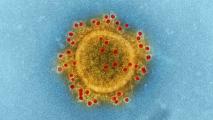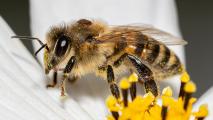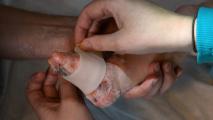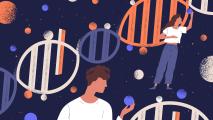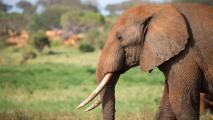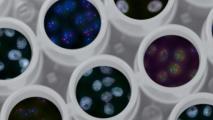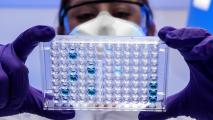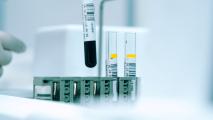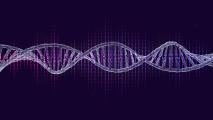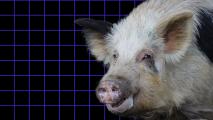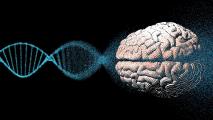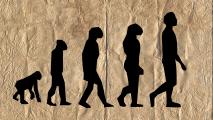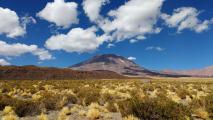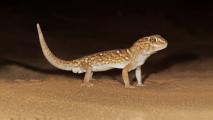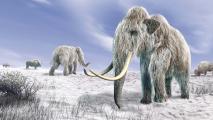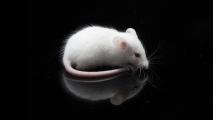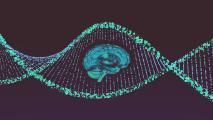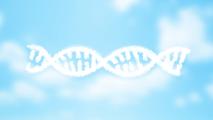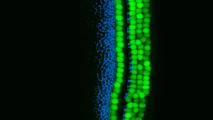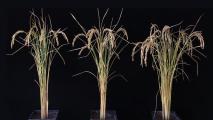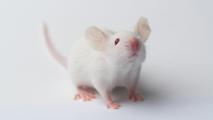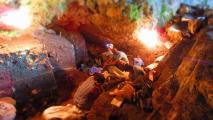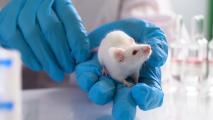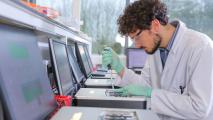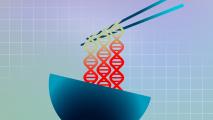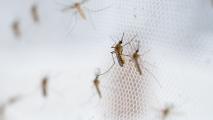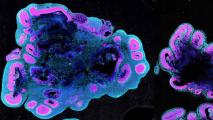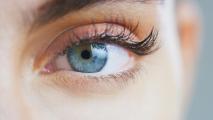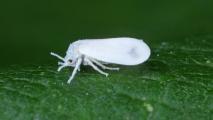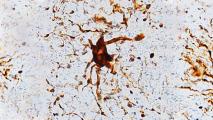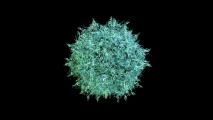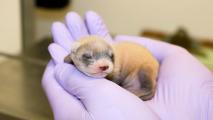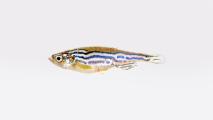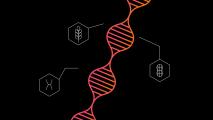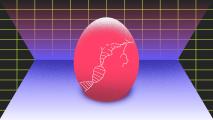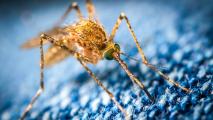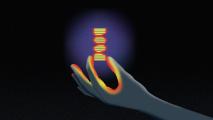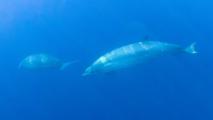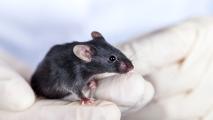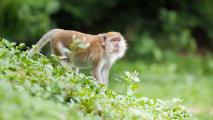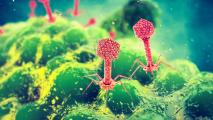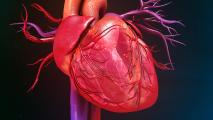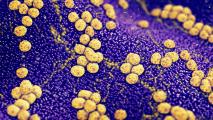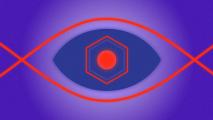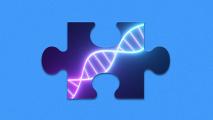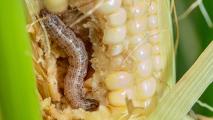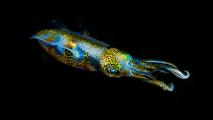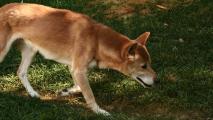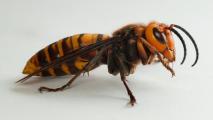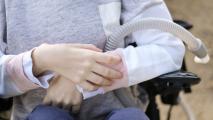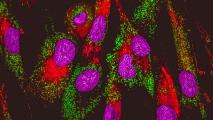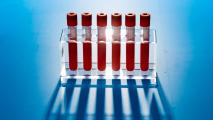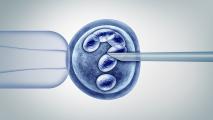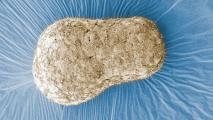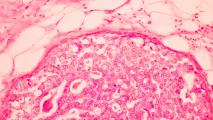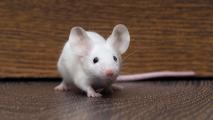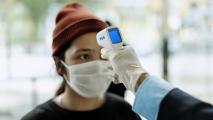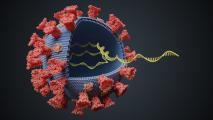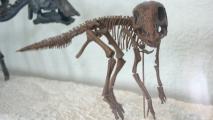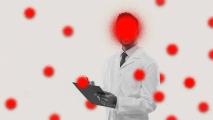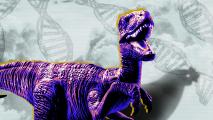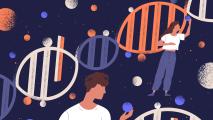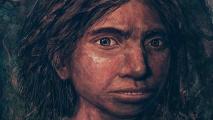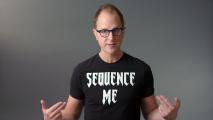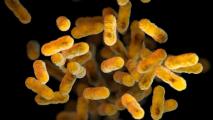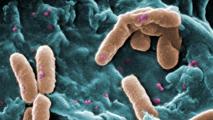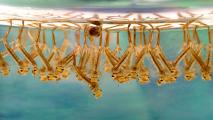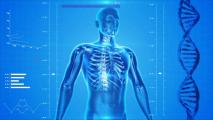Field: Genetics
Researchers identified over 5,500 new viruses in the ocean
These discoveries help scientists better understand not only the evolutionary history of viruses but also the evolution of life on Earth.
CRISPR could create hypoallergenic cats
The results of a recent study found that genetically engineering cats could be a solution to eliminating cat allergies.
One breed of honey bee can survive its deadliest threat
A line of honey bees bred to resist the Varroa mite parasite has proven itself in a large-scale trial involving more than 350 bee colonies.
Should we use genome editing to make better babies?
Over the years, many different people, from preachers to philosophers, have voiced their concerns over the safety and ethics of gene editing.
Purple tomatoes could soon hit store shelves
Purple tomatoes modified to be packed with antioxidants found in blueberries could soon be approved for sale by the FDA.
Wounds of kids with “butterfly disease” healed by DNA gel
A topical gene therapy helped heal the wounds of people with “butterfly disease,” a painful disorder that makes the skin incredibly fragile.
This “family tree of all of humanity” shows how all of us are linked
Researchers have mapped the genetic ties between every person who ever lived, in the "first draft" of our shared family history.
Elephant tusk DNA is used to expose poaching networks
Researchers using cell phone records, shipment logs, and elephant DNA have solved poaching mysteries and identified trafficking networks across the continent.
Clues to schizophrenia and bipolar disorder hidden in the dark genome
A new study suggests that the causes of these disorders are hidden in "dark genes," which may account for the enigma of their development.
How mRNA and DNA vaccines could treat autoimmune disorders, genetic diseases, and more
Using DNA or an mRNA vaccine, researchers are investigating the feasibility of essentially replacing missing genes that cause disease.
Golden blood: The rarest blood type in the world
Golden blood, despite sounding like medical nonsense, is actually the nickname for Rh-null, the world’s rarest blood type.
DNA used to make the world’s tiniest “radio”
Scientists have created the world's smallest antenna, measuring only five nanometers in length. It is designed to decipher real-time changes in proteins and records and transmits data via light signals.
First gene therapy for Tay-Sachs disease successfully given to two children
After 14 years in development, gene therapy has helped two children surpassed their life expectations and live seizure-free.
New breed of pig will provide organs for human transplantation
German researchers are breeding a new type of pig that’s been genetically modified to have organs ideal for human transplantation.
Gene therapy shows promise at treating severe form of epilepsy
A new Dravet syndrome treatment that targets genes could help extend the lives of people with the rare, but severe form of epilepsy.
What HIV & Amish DNA can tell us about staying healthy longer
Northwestern University has launched a new longevity research center where scientists will look for ways to combat biological aging.
What the ancient, alien jellyfish can tell us about the human brain
The jellyfish nervous system, revealed by glowing genes, may help unlock the secrets of how our own brain evolved.
Would we still see ourselves as “human” if other hominin species hadn’t gone extinct?
It’s all well and good to discuss how our humanity evolved – but what even is humanity?
Survival genes from the world’s harshest desert environment could save our crops
Researchers have discovered genes linked to plant survival in Chile's Atacama Desert, one of the world's harshest desert environments.
Lizard regenerates perfect tail thanks to stem cells
A USC study that prompted lizards to regenerate tails that were “perfect” could help facilitate breakthroughs in human regeneration.
Can the woolly mammoth save Siberia from climate change?
Harvard geneticist George Church’s new de-extinction startup aims to resurrect the woolly mammoth to help combat permafrost thaw.
mRNA cancer treatment shrinks tumors in mice
An mRNA cancer treatment in human trials has proven incredibly effective in mice, shrinking tumors in 85% of the rodents tested.
Forensic scientists continue mission to identify 9/11 victims
Forensic scientists have identified two more 9/11 victims and will soon use next-generation sequencing to analyze unidentified remains.
Brain-wide gene editing may one day treat Alzheimer’s
Researchers have developed a brain-wide gene editing technique that treated Alzheimer’s disease in mice.
Scientists are vacuuming DNA from the air to study biodiversity
Researchers have proven that the atmosphere contains measurable amounts of eDNA, and they can vacuum it from the sky.
Kenya’s GM cassava plant gets greenlight
Kenya is moving forward with developing a cassava plant that’s been genetically modified to resist cassava brown streak disease.
Permanent hearing loss may be reversible
A new mouse study suggests we may be able to reverse permanent hearing loss in humans by tapping into a latent regenerative ability.
Adding one gene to rice and potatoes increased yields by 50%
The insertion of a gene found in animals prompted potato and rice plants to produce 50% more food and exhibit drought-resistant qualities.
New treatment reverses age-related memory loss in mice
A treatment that reversed age-related memory loss in mice could one day treat or prevent such cognitive decline in older people.
Ancient human’s genome sequenced from DNA in cave dirt
Researchers have sequenced the genome of one of the ancient humans who lived in Satsurblia Cave 25,000 years ago using samples of cave dirt.
Cholera vaccine made from GM rice passes first human trial
An oral cholera vaccine that’s grown in genetically modified rice and can be stored at room temperature has passed its first human trial.
Editing one gene extends mouse life expectancy by 23%
By modifying just one gene, researchers were able to extend the life expectancy of mice by 23%, and they think their results may translate to humans.
The entire human genome has (finally) been sequenced
Researchers have finally sequenced the complete human genome, filling the gaps in the Human Genome Project’s historic first draft.
Gene therapy and special goggles partially restore man’s vision after 40 years
Researchers have demonstrated that restoring limited vision to people suffering from retinitis pigmentosa, a historically permanent type of blindness, is within reach.
The DNA-based diet you’ll be hearing about everywhere
A growing field called "nutrigenomics" aims to provide people with personalized lifestyle guidance based on their DNA
Gene therapy appears to cure “bubble boy disease”
A new gene therapy designed to treat children with ADA-SCID, a form of “bubble boy disease,” was incredibly successful in trials.
1 billion genetically modified mosquitoes will be released in the U.S.
Oxitec recently released genetically modified mosquitoes on three of the Florida Keys. The idea is that they will curb the spread of diseases by decreasing populations of Aedes aegypti.
Supercentenarians’ DNA reveals clues to human longevity
A human longevity study involving people over the age of 105 has found that genetic variants linked to DNA repair appear to contribute to a longer life.
These plants have been genetically modifying themselves for decades
New evidence shows that plants have been genetically modifying themselves for decades in a process called lateral gene transfer.
This spit test will help couples know their baby's risk of genetic disease
A new genetic test offers prospective parents a "polygenetic risk score," or an estimate of their potential offspring's predisposition to certain conditions.
A single gene turns on humans' rapid brain growth
Researchers have looked at gene expression in human brain organoids compared to other apes to discover the genetic mechanism crucial to triggering the human brain's rapid growth.
Penn scientists correct genetic blindness with a single injection into the eye
Antisense oligonucleotide therapy uses small molecules to alter RNA. Researchers have now used those molecules to alleviate a genetic form of blindness.
A major Huntington’s trial has failed. Here’s why there is still hope.
A simple genetic test can determine a person's fate for one of the worst diseases on the planet. But research offers new hope for Huntington's disease.
Argentina’s songbirds explain a mysterious type of speciation
With the help of a group of songbirds, researchers have uncovered the mystery of an evolutionary process called “sympatric speciation.”
This insect swiped a gene from plants to help itself survive
A plant gene has been discovered in whiteflies, marking the first known example of horizontal gene transfer of a functional gene between plants and insects.
“Zombie” cells grow in the brain after death
After death, gene expression increases in the brain’s glial cells — and those “zombie” cells could affect how we study neurological disorders.
A virus invisibility cloak makes AAV gene therapy safer
Researchers have figured out a way to cloak the AVV so it can sneak past the human immune system and deliver its gene therapy payload undetected.
Black-footed ferret is first cloned US endangered species
A black-footed ferret clone could inject a much-needed dose of genetic diversity into her species, which is on the brink of extinction.
These mutant zebrafish are growing arm bones
While studying mutant zebrafish, scientists discovered that a single genetic mutation caused the fish to start developing the beginnings of arms.
Can CRISPR engineer immunity to avian flu in chickens?
An outbreak of avian flu in chickens can mean millions of birds dead and billions of dollars lost. This startup wants to engineer flu-resistant poultry.
This company wants to use CRISPR to fix your celiac disease
Sufferers of celiac end up with some pretty lack-luster pastries. A startup thinks CRISPR can help.
Base editing could cure a host of genetic diseases
Base editing has proven useful for correcting disease-causing point mutations in animals — and now, human trials are on the horizon.
A “self-deleting” gene drive to end mosquito-borne diseases
A gene drive designed to remove itself from an insect population after a few generations could help bring an end to mosquito-borne diseases.
First-of-its-kind app lets scientists analyze DNA on the move
Genome sequencing tech is getting more portable. Now, there’s a genome analysis app that puts the ability to study those genomes in scientists’ pockets.
These chatbots provide genetic counseling services
Genetic counseling services are in high demand. Now, chatbots are providing some of those services, helping patients navigate DNA testing.
Environmental DNA may prove the discovery of a new kind of whale
Researchers have found what they believe to be a new species of beaked whale. Environmental DNA will be used to prove it.
Genetically modified pigs get green light from FDA
The FDA has approved Revivicor’s genetically engineered GalSafe pigs for use as food or medical products — a first for genetically modified animals.
Genetically engineered tomato can grow drug to treat Parkinson’s
The latest biopharmaceutical is a drug for Parkinson’s disease, Levodopa, produced by genetically modified tomato plants.
4 people in the world have a mysterious dementia. Could it hold a key to Alzheimer’s?
Alzheimer’s has proved difficult to treat. But solving the mystery of this ultra-rare frontotemporal dementia may unlock new understanding.
Gene therapy restores youthful eye cells — and vision — to older mice
A team of researchers have achieved sight restoration in older mice and those modeling glaucoma, in what could be an important step in understanding aging.
CRISPR used to edit HIV cure into monkey embryos
A mutation of the CCR5 gene can cure HIV — and thanks to CRISPR, scientists may soon be able to study it in animal models.
This databank of mammalian genomes is the Noah’s Ark of DNA
The Zoonomia Project is the largest database of mammalian genomes to date, and it’s already helping researchers study SARS-CoV-2 and extinction risk.
Bacteria’s self-destruct mechanism may unlock next-level genome editing
A mystery for 30 years, retrons are showing potential as genome-editing tools. Now, we know what they actually do.
The most detailed map of the human heart
A new map of the human heart details the function and location of 500,000 cells, providing a valuable tool for researchers studying cardiovascular disease.
New “universal” diagnostic test can ID any infection
UC San Francisco scientists have developed a new diagnostic test that uses DNA sequencing to quickly identify any pathogens in any type of patient sample.
Gene therapy shows promise as a glaucoma treatment
A new gene therapy was able to repair a damaged optic nerve in mice, suggesting it might be useful for treating glaucoma in people.
This parent is helping push autism gene therapy forward
Not too long ago, autism gene therapy was a pipe dream. Now, armed with specific targets and new methods, a small wave of gene therapies is gathering.
CRISPR scientists win Nobel Prize in chemistry
For the first time, the Nobel Prize in chemistry has gone to two women: CRISPR scientists Emmanuelle Charpentier and Jennifer A. Doudna.
Can genetic engineering stop the fall armyworm invasion?
The fall armyworm is devastating African agriculture, eating millions of pounds of crops. Can a genetically modified version control their advance?
Can RNA editing catch up to CRISPR?
Developed in the 1980s, RNA editing was overshadowed by CRISPR. But the last few years have seen a resurgence of interest in the gene editing technique.
$25 genetic test can improve asthma treatment for kids
Before prescribing an asthma treatment to children, doctors should use a cheap genetic test to look for a specific altered gene, according to a new study.
Scientists use 40-year-old DNA to clone endangered horse
The first cloned Przewalski’s horse could inject the critically endangered species with a much-need dose of genetic diversity.
“Extinct” New Guinea singing dog is found again, thanks to genetics
The New Guinea singing dog was considered extinct in the wild. But, new genetic evidence suggests otherwise.
The murder hornet’s genome may help stop the invasion
The Asian giant hornet has invaded the Pacific Northwest. Researchers hope a map of the murder hornet’s genome can help their hunt for them.
Gene therapy gives hope for duchenne muscular dystrophy
A boy received the first gene therapy trial for Duchenne muscular dystrophy and is able to walk once again.
For the first time, researchers edit human mitochondrial DNA
Researchers can now edit a part of the human genome that CRISPR has never been able to. This opens up new possibilities for research and cures for devastating rare genetic diseases.
Gene writing: A new type of genetic engineering
Startup Tessera Therapeutics has developed gene writing, a new approach to genetic engineering that it says overcomes CRISPR’s shortcomings.
Personalized blood test for cancer hunts down tumor DNA
A newly unveiled personalized blood test for cancer monitoring has a sensitivity 10 times that of existing liquid biopsy methods.
Secrets of the Dead Sea Scrolls may be in animal DNA
Scholars' understanding of the Dead Sea Scrolls may be enhanced by an unusual source: the DNA of the animals they’re printed on.
Gene therapy hailed as cure for sickle cell disease
A gene therapy that uses CRISPR to edit a patient's own stem cells looks like a “functional” cure for sickle cell disease and beta thalassemia.
Embryo model unlocks “black box” of human development
This ethical model of a human embryo provides a look at a never-before-studied stage of embryonic development: gastrulation.
Genetic “off switch” may lead to new breast cancer treatment
A much-needed triple negative breast cancer treatment could center on the suppression of a single gene identified in a new Tulane University study.
Gene editing corrects deafness-causing mutation in mice
Using a promising new technique for gene editing — base editing — researchers corrected a deafness-causing genetic mutation in mice.
Genetically engineering the first hypoallergenic cat
Scientists are attempting to create the world’s first truly hypoallergenic cat by deleting the feline gene that causes cat allergies.
Twin study suggests genes factor into COVID-19 symptoms
Genetic factors may explain about 50% of the differences in people’s COVID-19 symptoms, according to a study of more than 2,600 twins in the U.K.
DNA might be able to explain varying coronavirus symptoms
Scientists are looking for genetic factors that could explain varying coronavirus symptoms amongst seemingly similar COVID-19 patients.
Scientists find what looks like DNA in a dinosaur fossil
Researchers have found what appears to be DNA in a dinosaur fossil — a discovery that could radically change our understanding of DNA’s ability to survive.
Genetic evidence debunks coronavirus conspiracy theories, scientists say
A team of researchers analyzed the COVID-19 coronavirus. Their findings debunk the conspiracy theory that the virus was lab-made.
Should we turn chickens into dinosaurs?
These scientists are studying chickens to learn more about dinosaur DNA, and their findings could help us better understand our own genetic code.
$100 genome sequencing has finally arrived
China-based genome sequencing company MGI says it can sequence a human genome for just $100, a cost that could make the service available to all.
Modifying poplar tree genes to fight pollution
The number of poplar trees around the world has doubled, but a chemical compound in their leaves means they might be doing more harm than good.
The fight to end illegal logging
Citizen scientists are collecting tree samples to build a genetic database that will help identify the origins of stolen lumber and stop illegal logging.
A molecular biologist discusses the morality of gene editing
Molecular biologist Daisy Robinton speaks out on our moral imperative to solve some of humanity's greatest health threats.
Meet the artist who paints with dna clues
When Maayan Harel paints a portrait, her subject isn't sitting in front of her. She doesn't even have a photograph...
Why cancer patients should get genetic sequencing
In partnership with Intel
Genomic sequencing saved his live. Now he wants everyone to have access.
Living drugs may be the key to beating genetic disease
Engineering bacteria in the microbiome could fix previously untreatable genetic disorders.
What is cystic fibrosis—and what is it like?
What you need to know about this genetic disease, explained by someone who knows it inside and out.
How redesigning labs can demystify genetic science
"Scientists work in high-security buildings that are banned to the public and then wonder why they are misunderstood."
We're mapping 100 trillion human cells (and all of their genes)
The "Human BioMolecular Atlas" will map the active genes in over 200 types of cells and 80 different organ systems.
Personal genetics might solve the opioid crisis – and the pain crisis
Why does pain hurt more for some people? Why do others feel nothing at all?
